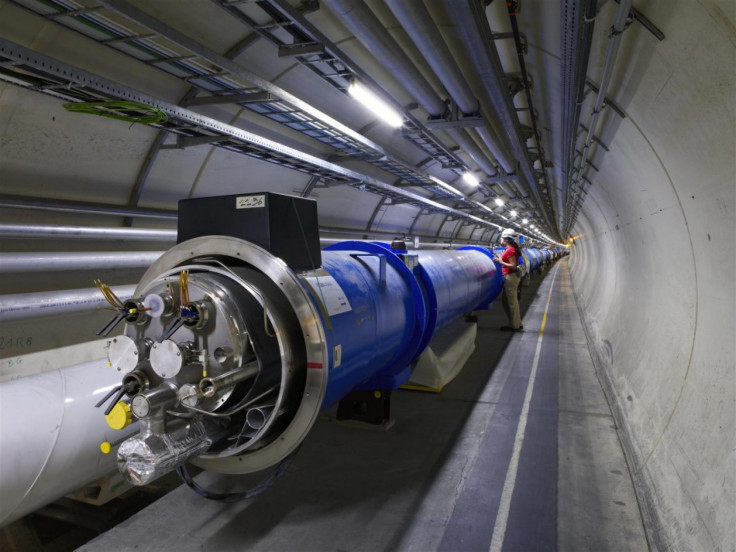Higgs boson Particle Discovery: Atom Smasher Energy Boost to Assist Hunt

The Higgs boson, a theoretical God particle physicists say is essential to learn how the early universe formed, is expected to be finally found in 2012.
The search will get a boost when researchers increase the energy of the Large Hadron Collider - the world's largest atom smasher used to hunt the Higgs boson - during its restart in the next month, according to reports.
The Large Hadron Collider, the world's largest and most powerful particle accelerator, is expected to operate at 14 percent more power than in 2011, colliding particles with 4 tera electron volts (TeV) of energy, up from 3.5 TeV.
Four TeV contains the energy equivalent of four flying mosquitos, but in the atom smasher, the energy gets packed into a space a million million times smaller than the bugs.
When we started operating the LHC for physics in 2010, we chose the lowest safe beam energy consistent with the physics we wanted to do, CERN's Director for Accelerators and Technology, Steve Myers, said in a press release. Two good years of operational experience with beam and many additional measurements made during 2011 give us the confidence to safely move up a notch, and thereby extend the physics reach of the experiments before we go into the LHC's first long shutdown.
The European Organization for Nuclear Research, known as CERN for its original French name, has been searching for the Higgs boson using the Large Hadron Collider since November 2009.
The Large Hadron Collider shuts down every winter due to energy prices and holidays. It is scheduled to resume operations and continue running until November, when it will shut down for 20 months to have its energy increased again to 7 TeV.
Preliminary data from the atom smasher had audiences worldwide anticipating proof of the particle that could help physicists understand the universe.
On Dec. 12, researchers from CERN announced that they sighted spikes in data that could represent a Higgs boson, though they cautioned that it also could have been an error. The excess may be due to a fluctuation, but it could also be something more interesting. We cannot exclude anything at this stage, Fabiola Gianotti, spokesperson for the experiment, told the BBC.
The physicists are confident that 2012 could be the year of the Higgs boson.
Our Standard Model Higgs analysis with data collected so far leaves us in a very exciting position for 2012, CERN's Research Director Sergio Bertolucci said in a press release.
With the data we collect this year, we will definitely be able to confirm or rule out a Standard Model Higgs, Bertolucci added.
The European Organization for Nuclear Research, known as CERN for its original French name, has been searching for the Higgs boson using the Large Hadron Collider since November 2009.
The Higgs boson was first theorized in 1964, and is thought to be the reason particles such as quarks and electrons have mass. Discovery of the Higgs boson would confirm the Standard Model of particle physics, which describes how particles and forces interact.
The Large Hadron Collider works by firing two beams of energy around a 27 kilometer (16.7 mile) pipe. The energy beams slam into each other, creating particle collisions that recreate what scientists believe occurred a fraction of a second after the Big Bang. The Large Hadron Collider could theoretically create the Higgs boson, which would exist for a septillionth of a second, but scientists believe they can observe it by examining how it decays.
Bertolucci said that 2012 will finally bring a conclusion to the question of whether the Higgs boson exists.
By the time the LHC goes into its first long stop at the end of this year, we will either know that a Higgs particle exists or have ruled out the existence of a Standard Model Higgs, he said in the press release. Either would be a major advance in our exploration of nature, bringing us closer to understanding how the fundamental particles acquire their mass, and marking the beginning of a new chapter in particle physics.
© Copyright IBTimes 2025. All rights reserved.





















